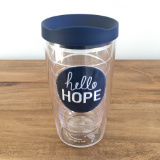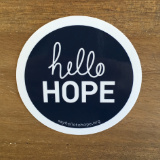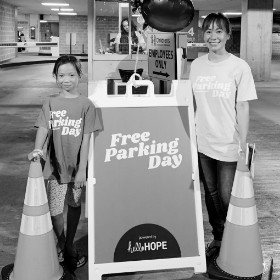The Power of Transparency
Don’t you love a good movie? You know, the kind where the hero never struggles? Where the sports team wins every game?
Movies like Rudy where the hero easily made it into the school and football team of his dreams, destined for greatness. Or maybe McFarland, USA where the students grew up with a pedigree of cross country running and make it into the top private schools to win the cross county championship. Or maybe you’re like me and you love Star Wars with Luke Skywalker learning about the force, never wavering or doubting, and easily conquering the evil Empire.
Wait. Let’s try that again.
In Rudy, it’s the underdog, the kid who gets rejected time and time again and struggles with learning disabilities and tragedy, who fiercely tackles each challenge until he makes it into Notre Dame and eventually makes it on the football team of his dreams. In McFarland, USA it’s the most unlikely cross country team with a rejected coach and chorus of people telling them why they’ll never succeed that end up showing the value of community and winning the championship. And in Star Wars, Luke struggles with impossible odds, the tragedy of his family history, and evil that threatens his very life before eventually trusting the force and resisting the dark side.
In each of these movies, the heroes deal with tragedy, odds stacked against them, and mountains of self-doubt. But they face their fears head-on and push themselves far beyond what they ever thought they could accomplish. And in the end? Triumph.
Why do we love these stories so much? Why do they make us cry, laugh, and feel like we can conquer the world? Because we relate to the struggles and the humanity of the characters. We long for stories that show the good, the bad, and the ugly because we see a little bit of ourselves in the hero or heroine, and we long to be courageous despite our own shortcomings.
The Power of Your Story
Even though we love a well-told story of good versus evil and the underdog beating the odds, somehow, stereotypical American culture seems to value having it all together. Even to the point that when someone asks me how I’m doing on a difficult day, my lips almost always spout out a hearty “good” without a second thought.
So what happens when I get in the habit of cruising along without opening up about both the shadows and the highlights of my story? Doesn’t it make things easier because I don’t have to explain myself or deal as much with messy emotions? Not in the long run.
The challenge is that this tendency of keeping up appearances and setting relational cruise control can make us feel isolated and alone. Times when I’ve settled into this approach resulted in some of the loneliest and most challenging times of my life. When we don’t have people around us that know the details of our daily story, our victories feel farther off and our valleys to feel deeper and darker.
On the opposite side of the spectrum, the experience of sharing our family’s story with this community or sitting down with a friend over a cup of coffee to ask for advice and pray about the challenges I’m grappling with inevitably leaves me feeling hopeful. Like the burden is a little lighter.
This is the reason that we’re so focused on telling stories on the blog. The process of going through the interview process and sharing the ups and downs of a journey through medical adversity has an impact on the families we’ve featured. Similarly, many families have shared with us that finding a relatable, transparent story from a family facing a similar diagnosis has inspired them to hope and feel like they aren’t alone.
Sharing Your Story with Candor
Stories are powerful, and they benefit both the listener and story-teller. But how do we make a practical step toward sharing our own journey with a little more candor?
Am I suggesting that we should simply unload all of our emotions every time someone asks, “how are you?” Or hang our head a little lower on particularly difficult days so people around us can see our struggle?
Not at all.
What I am suggesting is that carving out a little more time to build relationships that are built on trust, respect, and candor can transform our lives and point us to hope.
So, what story are you walking through right now? Are you celebrating a victory that means the world to you, but you’re afraid your friends would consider minor? Or maybe you’ve just received test results that set you back on your heels and have you grasping for hope?
Regardless what you’re facing today, consider opening up with an extra degree of transparency with someone you love and trust. You may find a greater sense of hope in your heart and the warm embrace of the community around you.
Here are five things you can do to take a step toward transparency:
Have a date night (in or out) with your spouse to check in on how things are going. Take a long walk, have a leisurely dinner, or chat over coffee. Regardless, leave the time and space to talk about the things you’re excited about or the things weighing on your heart.
Schedule time to get coffee with a friend. Leave enough time so you aren’t too rushed, and be sure to ask how your friend is doing, too.
Give a friend a call. Do you have a close friend that has moved far away or has your medical situation taken you out of town? Make sure they’re up to speed on how your story is unfolding.
Write a comment below. As a part of the helloHOPE community, we’d love to rejoice with you on the latest victory or pray for the challenges you’re facing. Sometimes we just need to have an invitation to share. So here’s yours!
Set aside some time to pray. If sharing your story with others is stressful or difficult, spend a little time in prayer to give God the update on how you’re doing and ask for the courage to share what you’re going through with a friend or family member.
We believe that sharing our stories is a powerful way to spread hope. Will you join us?
Are you looking for encouragement along the journey? Check out this ‘Prayer for Community’ that we have prayed for you.













